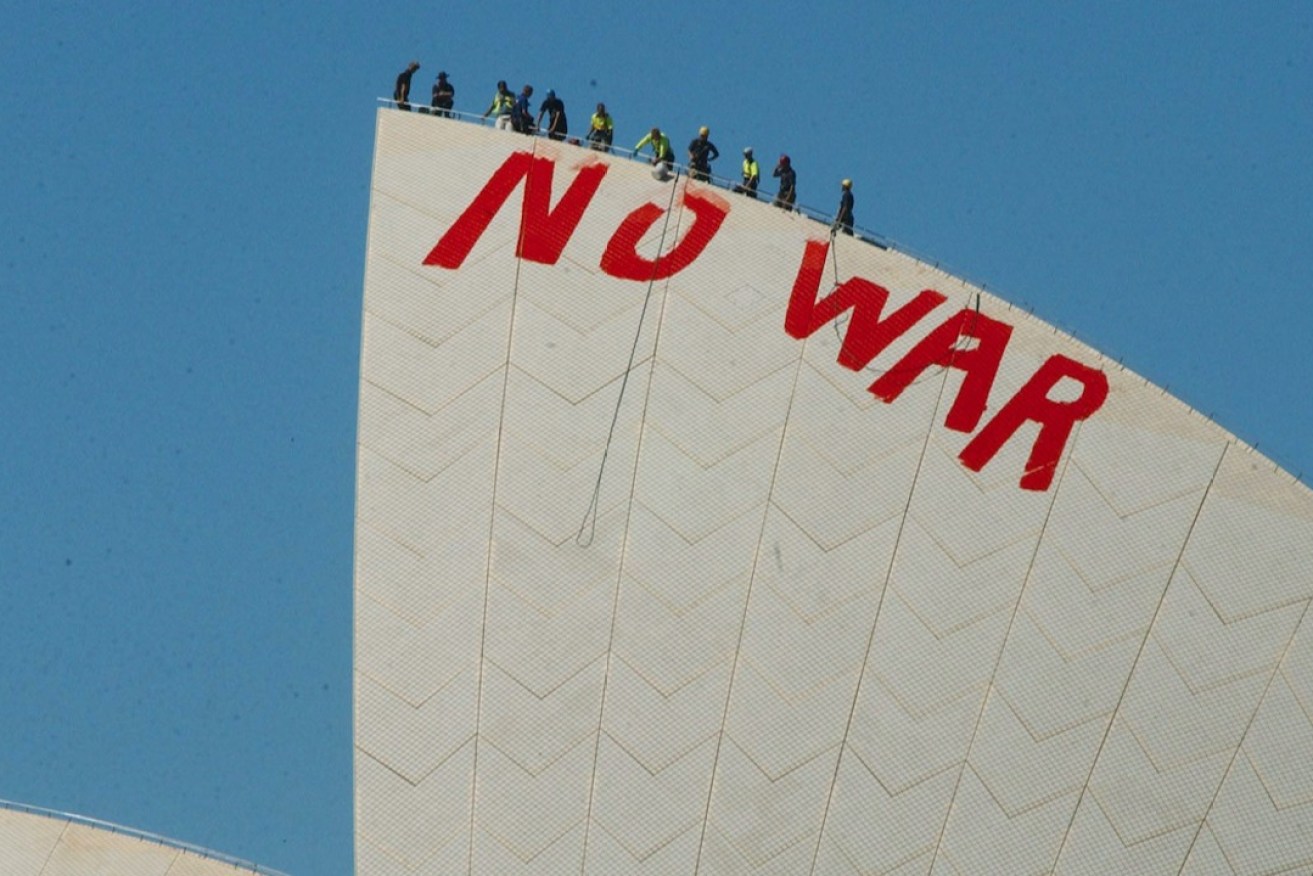Canberra probe into missing Iraq War documents
The former Morrison Government’s failure to provide official documents about Australia’s entry into the controversial Iraq War will be examined in an inquiry by a former chief of Australia’s security agency ASIO.

A protest against the Iraq War painted onto the Sydney Opera House in 2006. Photo: AAP/Mick Tsikas
The 2003 cabinet records were provided to the National Archives in 2020 by Scott Morrison’s Liberal government and were set to be released to the public on New Year’s Day 2024.
But Prime Minister Anthony Albanese revealed the previous administration had failed to hand over 78 documents, including files about the Howard government’s decision to join the US-led invasion of Iraq.
“Australians have a right to know the basis upon which Australia went to war in Iraq,” Albanese said on Wednesday.
“Australians lost their lives during that conflict and we know that some of the stated reasons for going to war was not correct in terms of the weapons of mass destruction that was alleged Iraq had at that time.”
The Department of Prime Minister and Cabinet was only notified of the failure to forward the documents about a week before they were set to be released to the public.
The files have since been found and the department attributed the botched transfer to COVID-19 pandemic disruptions in 2020 and “apparent administrative oversights by the department, the archives and security agencies”.
In response, the government has launched an independent review led by former Director-General of Security of Australia, Dennis Richardson.
“We need transparency and there is a need for the release of these documents,” Albanese said.
The move evoked some of the nation’s largest protests since the Vietnam War, with hundreds of thousands of people taking to the streets and protesters painting “No War” on the Sydney Opera House sails.
The US claimed the offensive, which began on March 19, 2003, was aimed at disarming weapons of mass destruction, ending Saddam Hussein’s support for terrorism and freeing Iraqi people.
And at the time, cabinet was warned of a “real and unacceptable threat to international peace and security”, with Australia at risk should weapons of mass destruction fall into the hands of terrorists.
Though military intelligence following the 9/11 attacks and ongoing war on terror suggested Iraq leader Saddam Hussein had such weapons, this would prove to be untrue in later years.
After consulting with national security agencies, Albanese said there was “no reason” the documents about this decision should not be made public, unless it put people in danger.
The government has requested the release of remaining files and will examine whether to take further action in a bid to improve transparency.
The review is expected to report back within the next two weeks.
– with AAP




